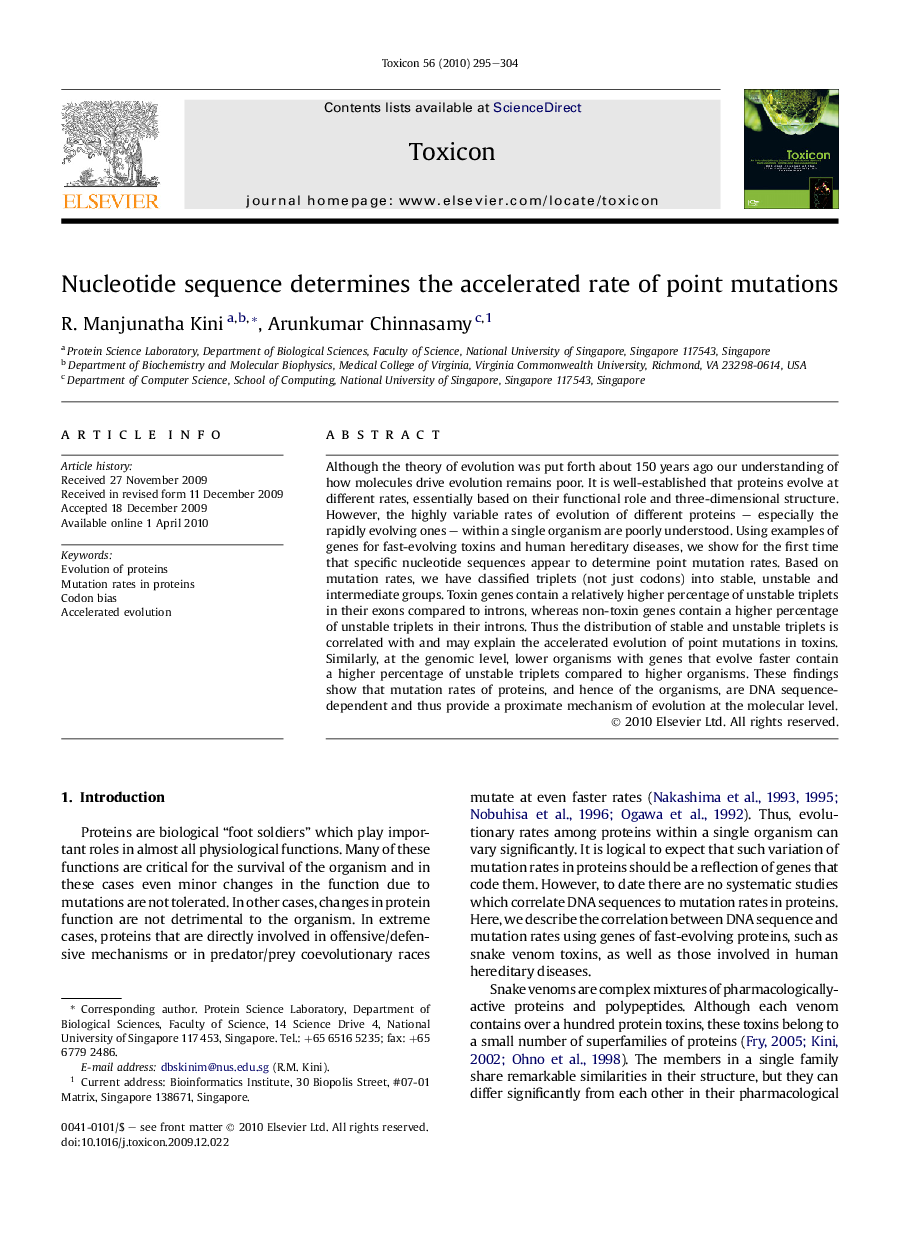| کد مقاله | کد نشریه | سال انتشار | مقاله انگلیسی | نسخه تمام متن |
|---|---|---|---|---|
| 2064931 | 1076895 | 2010 | 10 صفحه PDF | دانلود رایگان |

Although the theory of evolution was put forth about 150 years ago our understanding of how molecules drive evolution remains poor. It is well-established that proteins evolve at different rates, essentially based on their functional role and three-dimensional structure. However, the highly variable rates of evolution of different proteins – especially the rapidly evolving ones – within a single organism are poorly understood. Using examples of genes for fast-evolving toxins and human hereditary diseases, we show for the first time that specific nucleotide sequences appear to determine point mutation rates. Based on mutation rates, we have classified triplets (not just codons) into stable, unstable and intermediate groups. Toxin genes contain a relatively higher percentage of unstable triplets in their exons compared to introns, whereas non-toxin genes contain a higher percentage of unstable triplets in their introns. Thus the distribution of stable and unstable triplets is correlated with and may explain the accelerated evolution of point mutations in toxins. Similarly, at the genomic level, lower organisms with genes that evolve faster contain a higher percentage of unstable triplets compared to higher organisms. These findings show that mutation rates of proteins, and hence of the organisms, are DNA sequence-dependent and thus provide a proximate mechanism of evolution at the molecular level.
Journal: Toxicon - Volume 56, Issue 3, 1 September 2010, Pages 295–304